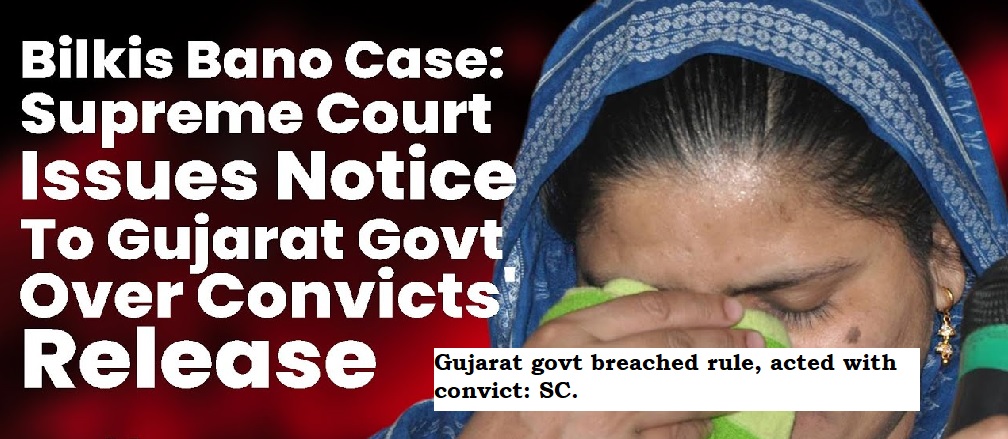


The Supreme Court's recent decision in the Bilkis Bano case has brought to light serious concerns about the actions of the Gujarat government in relation to the remission of 11 convicts. The case, which involves convicts sentenced to life imprisonment for multiple murders and gang rapes during the 2002 communal riots in Gujarat, took a significant turn as the Supreme Court slammed the state government for its role in the release of these convicts.
The controversy began when the Gujarat government, in August 2022, released the 11 convicts on Independence Day under the remission policy. However, the Supreme Court, in response to a writ petition filed by one of the convicts seeking premature release, had already expressed dissatisfaction with the state's actions. The court, in May 2022, had directed the State of Gujarat to consider the remission application of Radheshyam Shah, one of the convicts, under its 1992 remission policy.
The recent ruling, delivered by a bench of Justices BV Nagarathna and Ujjal Bhuyan, raised serious questions about the legality of the remission orders. One crucial aspect highlighted by the court was that the State of Gujarat was not the 'appropriate government' to decide on remission pleas, as the trial had been transferred out of the state to Maharashtra. This finding led to the court setting aside the remission orders.
Another ground for declaring the remission orders illegal was the 'usurpation of power' and 'abuse of discretion' by the Gujarat government. The court pointed out that the government had acted beyond its jurisdiction in directing the premature release of the convicts. The May 2022 order directing the State of Gujarat to consider the remission application was deemed a nullity, as it was obtained through fraud and misrepresentation of facts by Radheshyam Shah.
The court emphasized the absence of any application by the Gujarat government seeking a review of its May 2022 order. It noted that the government had submitted, during the proceedings, that the appropriate government was the State of Maharashtra, in accordance with the definition in Section 432 of the Code of Criminal Procedure. However, the court rejected this contention and criticized the state for not filing a review petition to correct the order, which, if done, could have avoided the current litigation.
Justice Nagarathna reasoned that the State of Gujarat had acted based on the court's direction but contrary to the letter and spirit of the law. The court accused the state of being complicit with the convict who approached the court and highlighted the lack of a review petition, asserting that the State of Gujarat had usurped the power rightfully belonging to the State of Maharashtra.
The court's decision was not solely based on procedural issues. It delved into the substance of the matter, emphasizing that the exercise of discretion by the State of Gujarat amounted to an instance of usurpation of jurisdiction and an abuse of discretion. The court asserted that if the State of Gujarat had followed the rule of law, it would have filed a review petition before the court. By failing to do so, the state breached the rule of law and aided the convicts inappropriately.
In conclusion, the Supreme Court's ruling in the Bilkis Bano case highlights the importance of adherence to legal procedures and the rule of law by state governments. The court's strong stance against the Gujarat government's actions underscores the need for careful consideration of remission applications and the significance of transparent and lawful decision-making processes in matters of criminal justice.
TAGS: Maharashtra Fraud Review petition Legal procedures Criminal justice